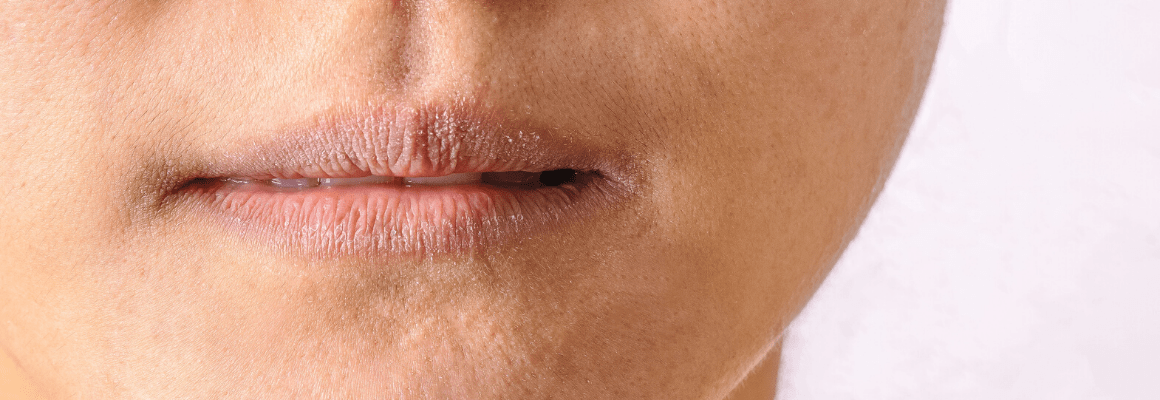Eczema refers to a group of inflammatory skin conditions that involve itchy, red, and chronically dry skin. While the red rashes typically appear on the inside of the elbows, behind the knees, on the face, and on wrists and forearms, they can appear anywhere on the body - including on or around the lips.
Also known as lip dermatitis or eczematous cheilitis, eczema on lips is characterized by redness, dryness, and scaling of the lips. Read on to learn what causes lip eczema and what the best treatments are.
What Does Eczema on Lips Look Like?
Although lip eczema may look similar to severely chapped lips, it’s important to tell the difference. Here are the top symptoms to look out for. They can also help you determine whether you might be suffering from eczema on lips or a cold sore:- Scaly or split skin
- Itchiness
- Red rash
- Painful or burning sensation
- Dryness or flakiness
- Change in pigmentation
- Swelling
Causes of Lip Eczema
While the exact cause of eczema is unknown, researchers believe it develops as a result of environmental and genetic factors. For example, some may develop lip eczema because other family members have the condition while it may develop in others because of chemicals found in lip products. It may even develop as a result of habitually licking the lips.
As there is no known cause of eczema, we’re going to focus instead on different factors that can trigger eczema around lips or on. The triggers are different for everyone but they are usually linked to an irritant or allergy. Here are some common triggers to watch out for:
- Sensitivity to extreme weather conditions - especially cold, dry climates
- Cigarette smoke
- Specific foods
- Fragrances and chemicals found in soaps and beauty products
- Irritants in fabrics and house-hold products
- Pollens
It’s also important to note that eczema on lips can be caused by internal factors as well. This includes things such as stress, a change in hormone levels, and even an unhealthy gut. No matter what triggers your eczema, it’s important to remember that lip eczema is not contagious. And as always, be sure to seek medical advice from a professional to get an accurate diagnosis.
Best Treatments for Eczema on Lips
As chemicals tend to further dry out the skin (which is exactly what you don’t want when suffering from eczema), we believe natural products are the best way to soothe eczema symptoms. By reducing your contact with chemicals or harsh toxins, you also reduce the likelihood that your skin will flare-up because of a bad reaction - especially on an area as sensitive as the lips!
Organic Manuka Honey Cream– Honey has been used for thousands of years as a natural healing agent. In particular, Manuka honey is highly effective at treating an itchy skin condition like eczema because of its antibacterial, anti-inflammatory, and antioxidant properties. That’s what makes our skin-soothing cream so special. Made with just six ingredients - including Manuka honey! - it’s a natural treatment that’s safe to put anywhere on the body, including delicate areas like the lips!
Home Remedies for Lip Eczema
Check out these easy home remedies for relief for irritated lips:
Coconut Oil – A key ingredient in plenty of natural treatments, coconut oil helps soothe irritated or inflamed skin thanks to its anti-inflammatory and antibacterial properties. Use a virgin, cold-pressed coconut oil for optimal results.
Sugar – If you’re looking for a natural scrub treatment, opt for using sugar as opposed to salt. Using a larger grain, such as brown sugar or cane sugar, works fine as well.
Aloe Vera – For quick relief, you can break off a piece of the aloe vera plant and rub it directly on your lips for a cooling effect. We recommend staying away from gels as these tend to contain alcohol or other drying substances that aren’t helpful for your skin.
For tips on healing from within, please check out Holistic Healing for Eczema.
References
https://www.medicalnewstoday.com/articles/323502 https://www.healthline.com/health/eczema-on-lips










